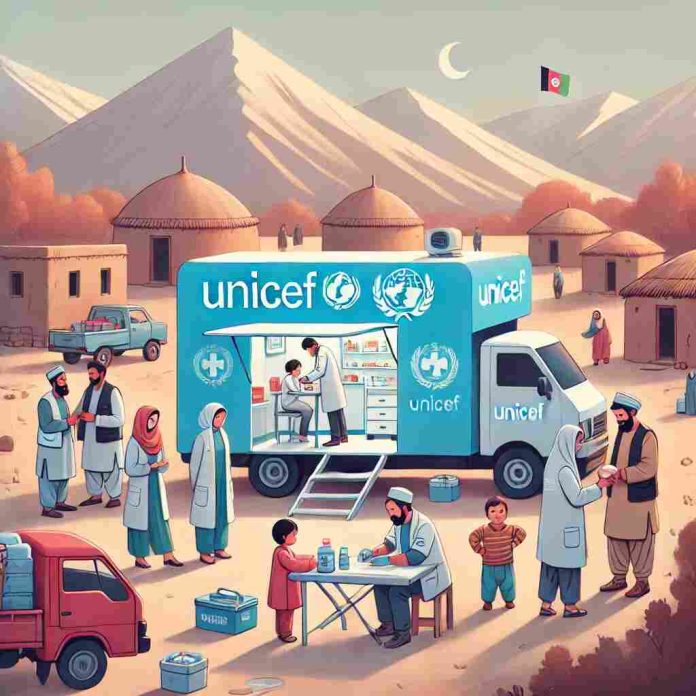health system in Afghanistan is currently facing a serious crisis. Over the past two decades, the country had made significant progress in health services, but recent political and economic changes have weakened the system. UNICEF and its partners are taking important steps to handle this situation of health system in Afghanistan, so that essential health services can be provided to millions of people.
Expanding health services
UNICEF has taken several important initiatives to expand health services in Afghanistan. Currently, the project provides basic health services to more than half of the population. There are 2,400 health facilities open across the country, including 96 fully equipped hospitals. To ensure that everyone has access to health services, UNICEF has worked closely with local health workers and community organizations for improving health system in Afghanistan.
Availability of health facilities
Health centers: Primary health services are available in 2,400 health centers.
Well-equipped hospitals: Specialist medical services are provided in 96 hospitals.
Geographical challenges
Afghanistan’s geographical location is the biggest barrier to access to health services. Many parts of the country are mountainous and inaccessible, making it difficult for people to access health services. Due to difficult geographical conditions, many people are unable to access health services, especially in rural areas. These challanges worsen the health system in Afghanistan.
Access in remote areas
Hard-to-reach locations: Many villages do not have health facilities, forcing people to travel long distances.
Roads: Poor roads and weather conditions make access to health services even more difficult.
Role of community health workers
UNICEF has trained 32,000 community health workers, who deliver health services in remote areas. These workers help people even in difficult conditions, especially in winter, when villages are cut off due to snowfall.
Functions of Community Health Workers
Health education: These workers make people aware about the importance of health services.
Prevention of diseases: Community health workers manage vaccination and other health services.
Challenges of health services in winter
Due to heavy snowfall in winter, villages are cut off. At this time, it is necessary to take timely decisions to treat diseases. Community health workers have to be especially active in winter, so that they can reach out to people in need.
Status of health services in winter
Closed roads: Snowfall makes access to many villages impossible.
Increase in diseases: The incidence of respiratory diseases increases in winter.
Lack of Awareness
Lack of awareness towards health services is also a major barrier in Afghanistan. Many people do not understand the importance of health services and hence they are not able to avail the necessary services. Community health workers are constantly working to overcome this lack, so that people can understand the importance of health services.
Measures to Raise Awareness
Education Programmes: Community health workers conduct health education programmes in local communities.
Information Distribution: Pamphlets and brochures are distributed to provide information about health services.
Impact of the Health Project
UNICEF’s health project has played a vital role in improving health services in Afghanistan. The project has employed 28,000 health professionals, of which about 40 percent are women. 20 million health and nutrition consultations are conducted every year, helping to improve the lives of millions of people.
Benefits of the project
Job creation: New job opportunities have been created in the health sector.
Improvement in health: People are getting better health services, improving their quality of life.
Future direction
Sustainable solution: Long-term plans to strengthen the health system permanently
Saved Community involvement: Local communities must actively participate in health services. UNICEF’s efforts to prevent the collapse of the health system in Afghanistan are not only helping to handle the current crisis, but are also taking important steps towards strengthening health services in the future.
Conclusion
UNICEF and its partners have played a vital role in maintaining Afghanistan’s health system. It is essential that the local community also participates in this effort and understands the importance of health services. People’s participation is essential to maintain the health system, so that everyone can get the necessary health services.
Also Read: Humanitarian Situation in South Asia: Challenges and Solutions Revealed in UNICEF Report

